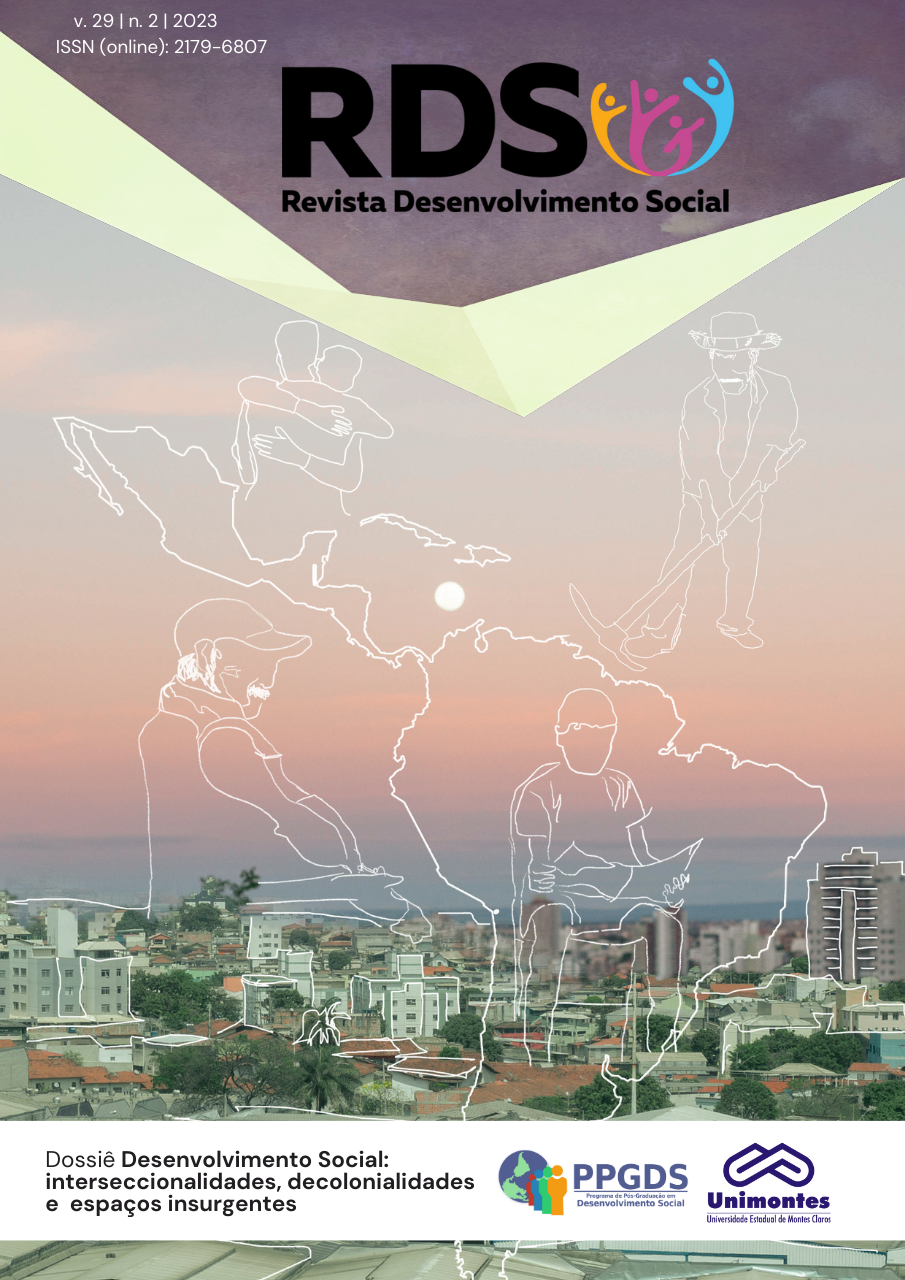“Who will want to know my story?”: Reflecting on decoloniality with adolescents in socioeducation in the light of racial studies
“Who will want to know my story?”: Reflecting on decoloniality with adolescents in socioeducation in the light of racial studies
DOI:
10.46551/issn2179-6807v29n2p94-113Keywords:
Socioeducation. Decoloniality. Adolescence. Intersection. Racial Literacy.Abstract
The intention of this writing is to promote the growth of the discussion about decoloniality with teenagers. Based on authors who discuss the topic, we wish to exemplify here, through a lesson plan carried out with adolescent inmates of the Department of Management and Socio-Educational Actions of the State of Rio de Janeiro (DEGASE), how it is emerging to think about a decolonial perspective with adolescents. This work intends to reflect not only on authors who are considered in the field, such as Palermo (1996), but also to bring tensions from Segato (2021) who thinks of coloniality as one of the main tools for the incarceration of the black population. Finally, we intend to show the effects that the approach to the theme had on the conceptions of adolescents who are socio-educational in deprivation of freedom measures, about race, class and gender based on the short story “Rolézim” by writer Geovani Martins (2018). Through the theoretical understanding of these and other authors cited throughout the article, adding practical experience in the classroom, it will be possible to realize that understanding and applying decoloniality in acting as educators and intellectuals, who think about the inequalities present in this society, will make that it is possible to build teachings about intersectionality and racial literacy with marginalized youth in Brazil.
Downloads
References
BRASIL. Estatuto da Criança e do Adolescente. Lei 8.069/90. São Paulo, Atlas, 1991.
EVARISTO, Conceição. Escritora Conceição Evaristo é convidada do Estação Plural: depoimento [jun. 2017]. Entrevistadores: Ellen Oléria, Fernando Oliveira e Mel Gonçalves. TVBRASIL, 2017. Disponível em: https://www.youtube.com/watch?v=Xn2gj1hGsoo. Acesso em: 15 jan. 2023.
FREIRE, Paulo. Pedagogia do Oprimido. Rio de Janeiro: Paz e Terra, 1987
HOOKS, bell. Ensinando a transgredir: a educação como prática da liberdade. Tradução: Marcelo Brandão Cipolla. São Paulo: Editora Martins Fontes. 2017.
HOOKS, bell. O feminismo é para todo mundo: políticas arrebatadoras / bell hooks; tradução Ana Luiza Libânio. – 1. ed. - Rio de Janeiro: Rosa dos Tempos, 2020.
MARTINS, G. O sol na cabeça. São Paulo: Companhia das Letras, 2019.
MENDES, Claudia Lucia e JULIÃO, Elionaldo. Trajetórias de vida de jovens em situação de privação de liberdade no Sistema Socioeducativo do Estado do Rio de Janeiro. Rio de Janeiro: DEGASE, 2018.
NASCIMENTO, Abdias do. O genocídio do negro brasileiro: processo de um racismo mascarado. São Paulo: Editora Perspectiva, 2016.
PALERMO, Zulma. Desde la otra orilla: pensamiento crítico y políticas culturales en América Latina, Córdoba: Alción, 2005.
SEGATO, Rita. A cor do cárcere na América Latina. In: Crítica da colonialidade em oito ensaios e uma antropologia por demanda. Rio de Janeiro: Bazar do Tempo, 2021.
THIOLLENT, Michel. Metodologia da Pesquisa-ação. São Paulo: Cortez, 2011.
WACQUANT, Loïc. As Prisões da Miséria. Paris: Raisons d'Agir, 1999.
Published
How to Cite
Issue
Section
License
Copyright (c) 2023 Ana Clara Peixoto

This work is licensed under a Creative Commons Attribution-NonCommercial-NoDerivatives 4.0 International License.
Esta licença permite que outros(as) façam download do trabalho e o compartilhe desde que atribuam crédito ao autor(a), mas sem que possam alterá-lo de nenhuma forma ou utilizá-lo para fins comerciais.












.png)
.png)




.png)









